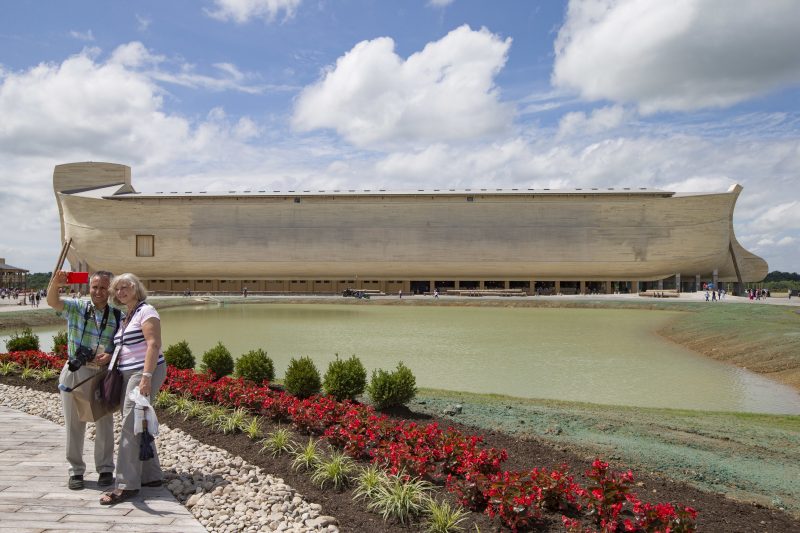
A plurality of Americans believe God created humans without evolution
House Speaker Mike Johnson’s (R-La.) sudden and unexpected elevation to the top job in the chamber last week meant that a lot of political observers (and more than a few politicians) were left playing catch-up. In the hours and days that followed his election as speaker, Americans learned a lot more about Johnson’s past rhetoric and advocacy, a background that sits squarely within the overlap of conservative and religious beliefs.
One particular vignette came up repeatedly. Over the past decade, Johnson has worked and advocated for a religious theme park in Kentucky, one centered around a re-creation of the ark described in the Bible. The theme park elevates the idea that the world was created in its present form by God several thousand years ago; that there was no evolution involved in the emergence of different life forms, including humans.
Polling released this week by Suffolk University for USA Today indicates that this comports with the views of nearly 4 in 10 Americans — more than say either that human evolution was steered by God or that humans evolved without any divine intervention.
As you might expect — particularly given the beginning of this article — Republicans are much more likely to say humanity was the result of divine creation than are Democrats. A majority of Republicans say divine creation created humans; just under half of Democrats say that there was no divine role.
This overlaps with other demographic characteristics that mirror partisanship. Younger Americans are less likely to adopt the strictly creationist view of human existence; older Americans are more likely to. People with master’s degrees or other advanced degrees are more likely to believe in evolution, as are people who most trust NPR and PBS as news sources. Those without college degrees and who watch Fox News are more likely to be creationists.
Those who indicate that they plan to support former president Donald Trump in the Republican primary in their state are more likely to be creationists, in keeping with his strong support from White evangelical Christians over time. There are too few supporters of Florida Gov. Ron DeSantis (R) to be statistically significant, but among those who responded, their views were more moderate than those of Trump supporters.
What’s particularly interesting about the Suffolk data is that a separate question about religious service attendance doesn’t line up as neatly. Here are the percentages of each of the above groups that say they go to services or events at other religious congregations at least once a week (shades of purple) and those who go less frequently or never (orange).
Notice that, with a few exceptions, like age, the divisions aren’t as dramatic. There’s a 30-point gap between Democrats and Republicans on the evolution-creation question and only a 20-point gap on weekly church attendance. There’s a 50-point gap on evolution between those who trust NPR and those who trust Fox News but only a 25-point gap on attendance.
Perhaps the most striking comparison is education. Creationism is embraced by twice as many people with no more than a high school degree than those with a master’s or other advanced degree — but they report going to church weekly at relatively equal rates. There isn’t even a big gulf in the percentage of each group that says they never attend a religious service.
Johnson, an attorney, appears to fit into that left-most point, a reminder that these patterns aren’t universal. But there is a correlation between educational attainment and politics, with more-educated Americans tending to vote more Democratic. It’s therefore difficult from this poll to disentangle the causality between education, belief in the principle of evolution and partisan identity.
But the overlap tracks with Johnson’s background: He’s a more-conservative legislator who backed (if only indirectly) the more-conservative position on human emergence. It’s a position that has more adherents across the country than the idea that human evolution occurred independent of any divine actor.
